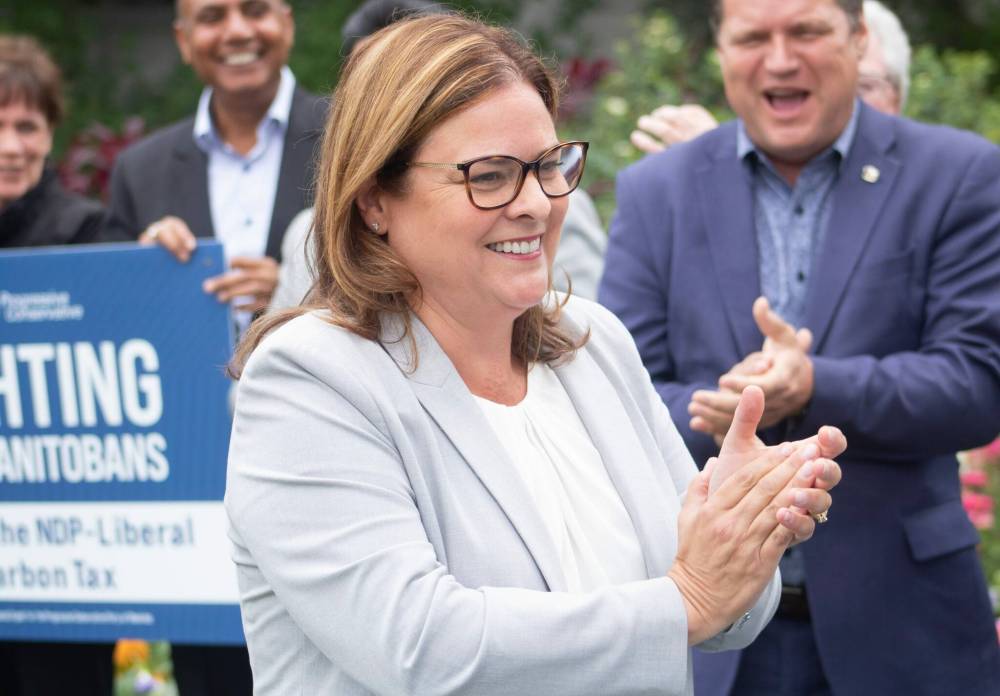Parties can’t suddenly save Manitoba’s ailing health-care system
Advertisement
Read this article for free:
or
Already have an account? Log in here »
To continue reading, please subscribe:
Monthly Digital Subscription
$1 per week for 24 weeks*
- Enjoy unlimited reading on winnipegfreepress.com
- Read the E-Edition, our digital replica newspaper
- Access News Break, our award-winning app
- Play interactive puzzles
*Billed as $4.00 plus GST every four weeks. After 24 weeks, price increases to the regular rate of $19.00 plus GST every four weeks. Offer available to new and qualified returning subscribers only. Cancel any time.
Monthly Digital Subscription
$4.75/week*
- Enjoy unlimited reading on winnipegfreepress.com
- Read the E-Edition, our digital replica newspaper
- Access News Break, our award-winning app
- Play interactive puzzles
*Billed as $19 plus GST every four weeks. Cancel any time.
To continue reading, please subscribe:
Add Free Press access to your Brandon Sun subscription for only an additional
$1 for the first 4 weeks*
*Your next subscription payment will increase by $1.00 and you will be charged $16.99 plus GST for four weeks. After four weeks, your payment will increase to $23.99 plus GST every four weeks.
Read unlimited articles for free today:
or
Already have an account? Log in here »
Hey there, time traveller!
This article was published 30/08/2023 (784 days ago), so information in it may no longer be current.
Who will save us from the saviours of health care?
Every major political party in this election — including the incumbent Progressive Conservatives — have either said, or are likely to say, they have the plan to save health care. Given the problems we’re facing in this province, it’s hardly a shocking strategy.
The hospital system is on the verge of collapse, driven largely by an acute shortage of nurses and physicians. Those shortages are the principal reason why Manitobans are being asked to wait months, if not years, for priority elective diagnostic and surgical procedures.

Mike Thiessen / Winnipeg Free Press Files
Premier Heather Stefanson has pinned her re-election hopes on what she has claimed are “historic investments.”
Over the past seven years under the PC government, a combination of misguided fiscal strategy, forced restructuring of the hospital system and the pandemic has pushed us to a point where the system needs a saviour.
But are any of the main political parties in a position to “save” health care?
Put a Band-Aid on a few of the festering sores? For sure.
Splint a few of the system’s busted limbs? Definitely.
But “save” the system from collapse? History will show us that rarely does any party that anoints itself a saviour during an election campaign live up to expectations once they’ve formed government.
In the 2023 election, voters will actually get to see two different kinds of saviours: the incumbent PC party offering to “fix” what they broke over their first two mandates; and the NDP and Liberal parties positioning themselves to “heal and restore.”
It deserves to be said the governing Tories spent a lot of time and money over the last year on a barrage of programs to bring more health-care professionals into the provincial system, increase capacity and bolster services outside of Winnipeg.
The Tory pledges included a surprise commitment of a $1.5-billion rebuild of the Health Sciences Centre, anchored by a new 10-storey tower to add much-needed beds and space for diagnostic and surgical procedures.
Along with the much-maligned task force that has been trying to reduce diagnostic and surgical wait times, and a campaign to recruit and retain more doctors and nurses, Premier Heather Stefanson has pinned her re-election hopes on what she has claimed are “historic investments.”
The flaw in the Tory strategy has nothing to do with the amounts of money being invested or the priorities identified. The money is justified and ideas are viable.
The real problem for the Tories is that hardly anyone is going to forget that Stefanson is trying to “fix” a problem the Tories largely created themselves. Not completely, mind you; the pandemic had a part to play.
But Stefanson’s predecessor, Brian Pallister, treated the health-care system like an abused dog. For five years, he bullied and starved the system until, not surprisingly, it started to bite back.
Voter skepticism of the Tory health-care pledges creates a huge opening for opposition parties, particularly the NDP.
With the writ of election not expected until Sept. 5, the New Democrats have already unleashed multiple health care pledges, including big-ticket initiatives to recruit, train and retain nurses and physicians.
Of particular note is the NDP’s plan to re-open three ERs closed under the PCs, a pledge that showcases the danger posed by any political party trying to position itself as a saviour.
Re-opening previously closed ERs will play extremely well in those areas of Winnipeg that feel they are starved of emergency medicine. However, it’s important to remember it was the execution of the plan to close ERs, and not the plan itself, that laid the ground work for many of the problems we see today.
The working theory behind the plan to close ERs — which came from a consultant’s report commissioned by the NDP before it lost the 2016 election — was pretty sound. Winnipeg does not have the health-care professionals to operate six full ERs. By reducing the number of ERs, it was thought that patients that really did need emergency treatment could get it without having to waste time being shuttled between hospitals.
The problem was the Tories steamrolled into the plan without adequately consulting nurses and physicians. When those two groups objected to the new plan and tried to propose alternative approaches, Pallister put his fingers in his ears.
Years later, after aggrieved nurses elected to retire or pursue opportunities in the private sector rather than work in the new hospital network, it was pretty clear Pallister had been hoisted on his own dogmatic petard.
Pallister’s mistakes do not, on their own, make a strong case for re-opening the ERs. Electorally, the idea could be a real winner. However, if the New Democrats win the election, they will still face a critical shortage of health-care professionals needed to make those ERs function properly.
Fixing, saving or healing our health-care system is a long-term project that requires careful planning, adequate funding and — perhaps most importantly — a willingness to collaborate with all the important players.
Rather than focusing on a new ‘this’ or improved ‘that,’ voters would be well advised to find a party that wants to talk first before prescribing a treatment for our ailing health-care system.
dan.lett@winnipegfreepress.com

Dan Lett is a columnist for the Free Press, providing opinion and commentary on politics in Winnipeg and beyond. Born and raised in Toronto, Dan joined the Free Press in 1986. Read more about Dan.
Dan’s columns are built on facts and reactions, but offer his personal views through arguments and analysis. The Free Press’ editing team reviews Dan’s columns before they are posted online or published in print — part of the our tradition, since 1872, of producing reliable independent journalism. Read more about Free Press’s history and mandate, and learn how our newsroom operates.
Our newsroom depends on a growing audience of readers to power our journalism. If you are not a paid reader, please consider becoming a subscriber.
Our newsroom depends on its audience of readers to power our journalism. Thank you for your support.
History
Updated on Thursday, August 31, 2023 10:13 AM CDT: Fixes typo







